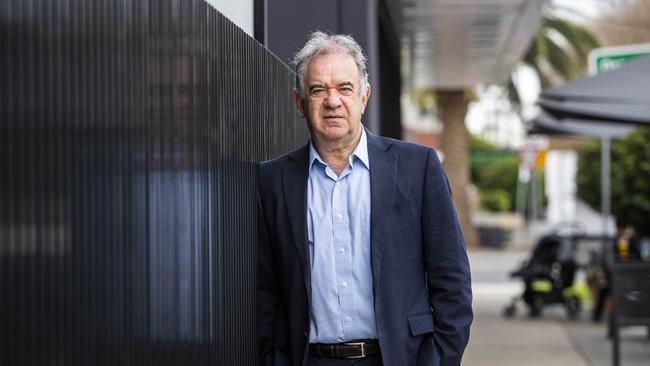Mesoblast shares surge on FDA application for remestemcel-L therapy on children
The Melbourne biotech says phase three clinical trials have significantly improved the life expectancy for children who develop a deadly disease after a bone-marrow transplant.

A 9.5 per cent jump in the Mesoblast’s share price is “just the beginning”, chief executive Silviu Itescu says, as the company seeks fresh approval for one of its blockbuster therapies from the US Food and Drug Administration.
The stem cell-focused biotech resubmitted its application to the FDA to allow its remestemcel-L therapy to be used on children with acute graft versus host disease.
There is currently no treatment available for the life-threatening complication from a bone-marrow transplant, while the approved therapy for adults does not improve life expectancy.
Dr Itescu and his team have spent the summer combing through more than 100,000 pages of clinical trial data to present to the FDA.
“Each patient’s own data needs to be provided. It is a very, very detailed process, which at the end of the day is the only way that the FDA can assure that the data is robust and accurate,” Dr Itescu said.
“We expect to hear from them over the next couple of weeks about giving us a formal, definitive date of review or when the review will be finished. There’s a six-month maximum by statutory law but it (a decision) can be well before that.”
Mesoblast shares surged 9.5 per cent to $1.04 on Wednesday, giving the company a market value of $762.6m. This compared with a 0.3 per cent gain across the broader share market.
“It’s a good start,” Dr Itescu said about the share price rise. “It provides investors with the confidence that we are moving forward – that’s the important point.
“This is a big deal for us but I think it’s just the beginning actually.”
Mesoblast has been on a rollercoaster ride with US regulators. In August 2020, the US Oncologic Drugs Advisory Committee (ODAC) voted nine to one in favour of the remestemcel-L therapy – a decision that sent Mesoblast shares soaring to a six-year high at $5.22.
But 12 months later, the FDA recommended that Mesoblast conduct at least one additional randomised, controlled study in adults and/or children to provide further evidence of the effectiveness of remestemcel-L for aGVHD, sending the company’s shares into a nosedive.
Mesoblast has provided new phase three clinical data – the final step before regulatory approval and commercialisation – which shows that remestemcel-L remains effective at least four years after initial treatment, improving life expectancy rates.
“There is an urgent need for a therapy that improves the dismal survival outcome in children with SR aGVHD,” Dr Itescu said.
“Our team has worked tirelessly over the past two years to provide a comprehensive response to the FDA. We are grateful for the agency’s active dialogue and constructive feedback that will ensure a high bar is met in terms of product consistency and predictability of clinical outcomes.”
The company has been sweating on FDA approval to lift its fortunes. Overall survival rates in phase three trials showed those who were treated with remestemcel-L were 63 per cent after one year, 51 per cent at two years, and 49 per cent at four years.
Dr Itescu said this compares with survival rates for the only FDA-approved drug, ruxolitinib – which can only be used on adults – of 40-49 per cent per cent after one year of treatment and 25-38 per cent at two years.
During the review process, the FDA will inspect Mesoblast’s stem cell drug plant in Singapore. The company will also begin rehiring a “small sales team” to ensure doctors can access the drug if the FDA gives it the green light.
“You want to be out there with the product actually in the hands of the doctors. You can‘t start that process then. This is starting now,” Dr Itescu said.
Remestemcel-L also shows promise as a treatment for other conditions, including inflammatory bowel disease and inflammatory lung disease, as well as its use in adults with graft versus host disease (GVHD).
But Dr Itescu said the company would take its time in pursuing other indications for the drug.
“We want to go one step at a time. We don’t want to confuse either FDA or the market. And so our primary focus is going to be GVHD, both paediatric and then adult.
“The adult opportunities are three times bigger than a paediatric, and there’s only one drug that’s approved for adults – it’s not approved for children. And that drug does not confer any improvement in survival.
“So we think that for those adult patients as well as children, both at high risk for death, is where I think our product is going to likely have a major advantage.”





To join the conversation, please log in. Don't have an account? Register
Join the conversation, you are commenting as Logout